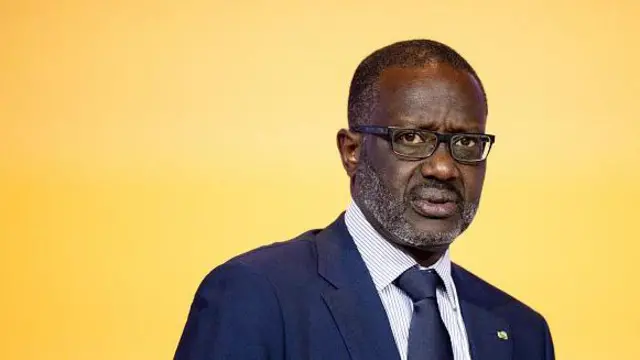Political Challenges Emerge for Tidjane Thiam in Ivory Coast
The landscape of politics in Ivory Coast is complex, even for those with stellar careers in international business. Tidjane Thiam, a former high-ranking executive, now finds himself grappling with significant hurdles that threaten his aspirations to become the country’s next president. His journey, once a seemingly straightforward path towards leadership, has faced serious legal setbacks that raise questions about the nation’s democratic integrity.
Thiam’s political ambitions were fiercely interrupted on April 22, when a ruling by a judge determined that he had forfeited his Ivorian citizenship after obtaining French nationality. This verdict effectively barred him from participating in the presidential election scheduled for October 2025. Having returned to Ivory Coast in 2022 following a prosperous career in global finance, Thiam’s political trajectory was initially promising. His pedigree, stemming from a noble family and being a great-nephew of the nation’s first president, Félix Houphouët-Boigny, contributed to expectations for his candidacy.
Thiam’s Political Ascent and Setbacks
After spending over two decades in the global corporate arena, including CEO roles at major firms like Prudential and Credit Suisse, Thiam re-emerged in Ivorian politics in the wake of former President Henri Konan Bédié’s death in 2023. Positioned as the candidate for the opposition Democratic Party of Ivory Coast (PDCI) in April, he was seen as the main challenger to the long-serving incumbent, Alassane Ouattara.
Despite the considerable challenges posed by Ouattara’s incumbent advantages, including a strong economic record and an established support base, Thiam was perceived as a viable alternative. His moderate political stance and expertise offered Ivorian citizens a chance for change amid widespread dissatisfaction with the ruling party’s governance. However, recent legal developments indicate he may never get the opportunity to contest for the presidency.
The Implications of Citizenship Laws
Thiam’s case underscores the importance of citizenship laws in Ivory Coast, as the ruling revealed stringent rules regarding dual nationality. Ivorian law allows dual citizenship under limited circumstances, and the court’s decision came into effect automatically, stating that Thiam lost his citizenship nearly 40 years ago upon acquiring French nationality. Although he attempted to regain his citizenship in February 2025, the applications fell short of the deadline for this year’s election.
| Candidate | Status | Party Affiliation |
|---|---|---|
| Tidjane Thiam | Banned | PDCI |
| Alassane Ouattara | Running | RHDP |
| Laurent Gbagbo | Excluded | PDP |
| Guillaume Soro | Excluded | PDCI |
| Charles Blé Goudé | Excluded | N/A |
Thiam, advocating for his Ivorian identity, emphasized the absurdity of the situation, questioning the implications for the nation’s celebrated football team, many of whose members possess dual nationality. His arguments highlight the ongoing complexities within Ivorian citizenship laws and their repercussions on the political stage.
As he contemplates his next steps, Thiam’s position raises broader concerns about the future of democracy in Ivory Coast. The exclusion of prominent political contenders threatens to usher in an electoral landscape devoid of substantial competition. This development may amplify the already pervasive disillusionment among citizens, especially youth, who are critical voters in a nation grappling with its identity politics.
The unfolding events indicate that the approach to the upcoming election will heavily depend on how the political establishment responds to this impasse. With precedent in the region showing instances of positive political change, such as in Liberia and Senegal, the hope remains for a similar outcome in Ivory Coast, where democratic ideals could flourish in the face of adversity.


